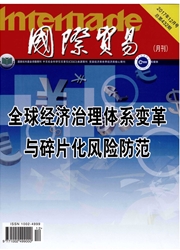

 中文摘要:
中文摘要:
本文采用案例研究法和文献分析法,分析了华西村、大寨、周家庄、郝堂村等案例和党中央有关城镇化的文献,认为城镇化是解决"三农问题"的重要途径和自然结果,在这个进程中,要特别重视农民集体对城镇化的主导权问题。这表现在五个方面:一是农民要依靠集体的力量来确保自己对城镇化的主导权;二是城镇化要以具有内置造血性互助合作金融机制的村社共同体为组织核心;三是城镇化需要农民个体以资本"合纵"来节制和引导外来私有资本;四是城镇化要以农村集体经济的解放和发展为主要驱动力;五是国家在政策环境上要兼顾城镇化和粮食安全,至少要让基本农田保护区内的粮农获得社会平均利润。
 英文摘要:
英文摘要:
Through case study and literature analysis methods, this paper analyzes the cases of Huaxi village, Dazhai village, Zhoujiazhuang people's commune, Haotang village and the CCP central committee's literatures about urbanization, and finds that urbanization is an important solution and a natural result of the three rural issues of agriculture, countryside and farmers. In this process, special attentions need to be paid to the dominant power of farmers collective. This is displayed in five aspects: first, farmers need to rely on the collective strength to ensure their dominance of urbanization. Second, as the core organization of urbanization, village communities with built-in hematopoietic mutual aiding and co-operational financial mechanisms should be built up. Third, in the process of urbanization, collective capital alliances of the farmers' individual capitals are needed to control and guide the exotic private capital. Fourth, the liberation and development of rural collective economies are main driving forces of urbanization. Fifth, our country should seek a set of policies with which to keep a balance between urbanization and food security, at least make it possible for the grain farmers in basic farmland protection zones to get social average profits.
 同期刊论文项目
同期刊论文项目
 同项目期刊论文
同项目期刊论文
 期刊信息
期刊信息
